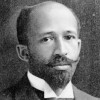Thou knowest that since the invention of gun-powder, there is no place impregnable: that is to say, Usbek, there is no longer any asylum upon earth against injustice and violence. I always tremble for fear at last some invention will be found out of a shorter way to destroy mankind, and to depopulate whole nations and whole kingdoms.
[Tu sais que, depuis l’invention de la poudre, il n’y a plus de places imprenables ; c’est-à-dire, Usbek, qu’il n’y a plus d’asile sur la terre contre l’injustice et la violence. Je tremble toujours qu’on ne parvienne à la fin à découvrir quelque secret qui fournisse une voie plus abrégée pour faire périr les hommes, détruire les peuples et les nations entières.]
Charles-Lewis de Secondat, Baron de Montesquieu (1689-1755) French political philosopher
Persian Letters [Lettres Persanes], Letter 106, Rhedi to Usbek (1721) [tr. Ozell (1760 ed.), # 105]
(Source)
(Source (French)). Alternate translations:
Thou knowest, that since the Invention of gun-powder, there is no place impregnable; that is to say, Ushek, that there is not any longer an asylum upon earth against injustice and violence. I always tremble, left they should at arrive at last, at the discovery of some secret, which may furnish them with a shorter way to destroy mankind, and to depopulate whole nations and whole kingdoms.
[tr. Floyd (1762), # 105]
You know that since the invention of gunpowder no place is impregnable; that is to say, Usbek, that there is no longer upon the earth a refuge from injustice and violence. I dread always lest they should at last discover some secret which will furnish them with a briefer method of destroying men, by killing them off wholesale in tribes and nations.
[tr. Davidson (1891)]
You know that, since the invention of gunpowder, no fortress is impregnable; that is to say, Usbek, that there is no longer upon earth an asylum against injustice and violence. I am always in terror lest some secret or other should be at length discovered that will not only kill men, but destroy entire tribes and nations.
[tr. Betts (1897)]
You know that since the invention of gunpowder there have been no impregnable places; and this is to say, Usbek, that there is no longer an asylum from injustice and violence any¬ where on the earth. I am in constant terror that ultimately someone will succeed in discovering some secret which will furnish an even more efficient way to kill men, by destroying whole peoples and entire nations.
[tr. Healy (1964)]
You know, since the invention of gunpowder, no fortification is impregnable; in other words, Usbek, there no longer exists, anywhere on earth, any asylum from injustice and violence. I live in fear that men of science will eventually discover some secret which would offer a faster day to kill people, destroy races, and wipe out entire nations.
[tr. Mauldon (2008)]
You know that since the invention of gunpowder, no place is impregnable -- and that is to say, Usbek, that there is no place on earth where we are safe from injustice and violence. I tremble at the thought that eventually someone will discover some new secret that will lead to an even more efficient way to kill even more people, perhaps to destroy entire populations and nations.
[tr. MacKenzie (2014), # 105]
Quotations about:
protection
Note not all quotations have been tagged, so Search may find additional quotes on this topic.
The walls of books around me, dense with the past, formed a kind of insulation against the present world and its dangers. I hated to get up.
Ross Macdonald (1915-1983) American-Canadian author [pseud. of Kenneth Millar]
The Chill, ch. 8 (Lew Archer) (1963)
(Source)
Often misquoted in the third person ("The walls of books around him ...")
People who put slipcovers, doilies, plastic protectors, and cellophane on everything good that they own rarely live to see an occasion so good that all these covers are removed.
Judith Martin (b. 1938) American author, journalist, etiquette expert [a.k.a. Miss Manners]
Miss Manners’ Guide to Excruciatingly Correct Behavior, Part 1 “Introduction,” “Some Thoughts on the Impulse Rude” (1983)
(Source)
The nobility, say nobles, serves as intermediary between king and people. True, just as the hound serves as intermediary between hunter and hares.
[«La noblesse, disent les nobles, est une intermédiaire entre le roi et le peuple…» Oui, comme le chien de chasse est un intermédiaire entre le chasseur et les lièvres.]Nicolas Chamfort (1741-1794) French writer, epigrammist (b. Nicolas-Sébastien Roch)
Products of Perfected Civilization [Produits de la Civilisation Perfectionée], Part 1 “Maxims and Thoughts [Maximes et Pensées],” ch. 8, ¶ 511 (1795) [tr. Dusinberre (1992)]
(Source)
(Source (French)). Alternate translations:
The nobility, say the nobles, is an intermediary between the king and the people.... Precisely; just as the hound is the intermediary between the huntsman and the hares.
[tr. Hutchinson (1902)]
The Nobility, its members say, is an intermediary between the King and the People. .... Exactly, just as hounds are intermediary between men and hares.
[tr. Mathers (1926), ¶ 512]
“The nobility,” say the nobles, “is an intermediary between the king and the people . . .” No doubt: just as the hunting dog is an intermediary between the hunter and the hares.
[tr. Merwin (1969)]
"The nobility," say the nobles, "is a go-between twixt the king and the people ..." Yes, just as the hunting dog is the go-between twixt the huntsman and the hares.
[tr. Pearson (1973)]
"The nobility", say the nobles, "is an intermediary between the king and the people ..." Yes, like a hunting dog is an intermediary between a hunter and hares.
[tr. Siniscalchi (1994), ¶ 511]
"We're the intermediary between the king and his subjects," claim the nobility. Yes indeed -- and the hound is the intermediary between the hunter and the hare.
[tr. Parmée (2003), ¶ 269]
A wise man once said, “Convention is like the shell to the chick, a protection till he is strong enough to break it through.”
Learned Hand (1872-1961) American jurist
“The Preservation of Personality,” commencement address, Bryn Mawr College (1927-06-02)
(Source)
Source of the quotation Hand references is unknown. It is often attributed directly to Hand himself.
One of the great but less famous heroes of World War Two was Andre Trocme, the Protestant pastor of the village of Le Chambon sur Lignon in France, which sheltered and saved the lives of five thousand Jews under the noses of the Gestapo. Forty years later Pierre Sauvage, one of the Jews who was saved, recorded the story of the village in a magnificent documentary film with the title, “Weapons of the Spirit”. The villagers proved that civil disobedience and passive resistance could be effective weapons, even against Hitler. Their religion gave them the courage and the discipline to stand firm. Progress in religion means that, as time goes on, religion more and more takes the side of the victims against the oppressors.
Freeman Dyson (1923-2020) English-American theoretical physicist, mathematician, futurist
“Progress in Religion,” Templeton Prize acceptance speech, Washington National Cathedral (9 May 2000)
(Source)
The task is to throw all those things on the exact same burn pile as the collected works of all the apologists for conservatism, and start fresh. The core proposition of anti-conservatism requires no supplementation and no exegesis. It is as sufficient as it is necessary. What you see is what you get:
The law cannot protect anyone unless it binds everyone; and it cannot bind anyone unless it protects everyone.
Frank Wilhoit (contemp.) American composer and software architect
Crookedtimber.org, “The Travesty of Liberalism,” Comment #26 (22 Mar 2018)
(Source)
Conservatism consists of exactly one proposition, to wit:
There must be in-groups whom the law protects but does not bind, alongside out-groups whom the law binds but does not protect.
There is nothing more or else to it, and there never has been, in any place or time.
Frank Wilhoit (contemp.) American composer and software architect
Crookedtimber.org, “The Travesty of Liberalism,” Comment #26 (22 Mar 2018)
(Source)
You know, you have to really decide where you want to live: if you want to live in the jungle or in the zoo. Because if you want the beauty, if you want freedom, the jungle is … that’s your world. But you’re in danger there, you have to live with snakes, sharks, tigers, skunks, you know, mosquitoes, leeches. You want to be safe, you have to live in the zoo. You are protected. You know, if you are a lamb, the tiger will not attack you. You know, you’ll get a little bit something to eat every day; that’s fine. You have to work hard, but you live behind the bars, and what’s wonderful — you live there behind the bars and you dream about the beauty of the jungle. Now what happened was that the bars opened, and everybody runs after the dream. And suddenly, well, yeah, it’s beautiful — yes, I am free to go wherever I want, do whatever I want, but where do I want to go? Oh, my God, and here is a tiger and here’s a snake. Oh, oh, and people have a tendency to, you know, back. And you will be surprised how many people prefer to live in the zoo; they are not ready to pay for the freedom; they think that freedom should be, you know, for free, even for granted, which never is, never is.
Jan Tomáš "Miloš" Forman (1932-2018) Czech-American film director, screenwriter, actor, academic
National Security Archive interview (18 Jan 1997)
(Source)
On life and work in the post-Communist world.
Good marriages seem to function something like a buddy system — the people in them swim in their own waters but keep a protective eye on each other, and should the whistle blow, turn up quickly to hold each other’s hand.
If fifty bands of men surrounded us
and every sword sang for your blood,
you could make off still with their cows and sheep.[εἴ περ πεντήκοντα λόχοι μερόπων ἀνθρώπων
νῶϊ περισταῖεν, κτεῖναι μεμαῶτες Ἄρηϊ,
καί κεν τῶν ἐλάσαιο βόας καὶ ἴφια μῆλα.]Homer (fl. 7th-8th C. BC) Greek author
The Odyssey [Ὀδύσσεια], Book 20, l. 49ff (20.49) [Athena to Odysseus] (c. 700 BC) [tr. Fitzgerald (1961)]
(Source (Greek)). Alternate translations:
If there were
Of divers-languag’d men an army here
Of fifty companies, all driving hence
Thy sheep and oxen, and with violence
Offer’d to charge us, and besiege us round,
Thou shouldst their prey reprise, and them confound.
[tr. Chapman (1616)]
Though fifty bands of men should us oppose,
You should their herds of cattle drive away.
[tr. Hobbes (1675), l. 37ff]
Were we hemm’d around
By fifty troops of shouting warriors bent
To slay thee, thou should’st yet securely drive
The flocks away and cattle of them all.
[tr. Cowper (1792), l. 54ff]
Though fifty bands stood threatening thee and me,
All breathing slaughter, their fat kine and sheep
Thou shouldst drive off, and take their wealth in fee.
[tr. Worsley (1861), st. 6]
If fifty troops of men, as good as thou
Surround us twain, and strive to slay in battle,
Of their fat kine and sheep should'st thou be captor!
[tr. Bigge-Wither (1869)]
Though fifty bands of mortals that in speech
Articulate use their tongues around us rose
In conflict fierce to kill us both intent,
Still should'st though prove the man that all those beeves
And fatten'd flocks should to thye homestall drive.
[tr. Musgrave (1869), l. 70ff]
Even should fifty companies of mortal men compass us about eager to slay us in battle, even their kine shouldst thou drive off and their brave flocks.
[tr. Butcher/Lang (1879)]
If fifty bands of menfolk, word-speaking wights that are,
Stood round about us, eager for our slaying in the war,
Yet their kine shouldst though be driving and their goodly fatted sheep.
[tr. Morris (1887)]
Should fifty troops of mortal men stand round about us, eager in the fight to slay, you still might drive them away from their oxen and sturdy sheep.
[tr. Palmer (1891)]
Even though there were fifty bands of men surrounding us and eager to kill us, you should take all their sheep and cattle, and drive them away with you.
[tr. Butler (1898)]
If fifty troops of mortal men should stand about us, eager to slay us in battle, even their cattle and goodly sheep shouldest thou drive off.
[tr. Murray (1919)]
Though fifty troops of humans hemmed us round, all mad to kill outright, yet shuld you win through to lift their flocks and herds.
[tr. Lawrence (1932)]
If you and I were surrounded by fifty companies of men-at-arms, all thirsting for your blood, you could drive away their cows and sheep beneath their very noses.
[tr. Rieu (1946)]
Even though there were fifty battalions of mortal people
standing around us, furious to kill in the spirit of battle,
even so you could drive away their cattle and fat sheep.
[tr. Lattimore (1965)]
Even if fifty bands of mortal fighters
closed around us, hot to kill us off in battle,
still you could drive away their herds and sleek flocks!
[tr. Fagles (1996)]
Even if there were fifty squadrons of armed men
All around us, doing their mortal best to kill us,
You would still be able to run off with their cattle!
[tr. Lombardo (2000)]
If in fact there were fifty battalions of men who are mortal
Standing around us, eagerly striving to kill us in battle,
even from them you would drive their cattle away and their fat sheep.
[tr. Merrill (2002)]
You and I could be surrounded by fifty companies of men-at-arms, all thirsting for our blood, but you would still drive away their cows and sheep.
[tr. DCH Rieu (2002)]
If we were ambushed, surrounded by not one but fifty gangs of men who hoped to murder us -- you would escape, and even poach their sheep and cows.
[tr. Wilson (2017)]
If there were fifty troops of mortal men in ambush all around us, firmly determined to kill us, nevertheless even then you'd drive off their cattle and fattened sheep.
[tr. Green (2018)]
Even were fifty troops around us, to kill us, you'd end by driving off their cattle!
[tr. Green (2018), summary]
If there were fifty groups
of other men standing here around us,
intent on slaughter, even so, I say,
you’d still drive off their cattle and fine sheep.
[tr. Johnston (2019), l. 55ff]
Their guards also are such as are used in a kingly government, not a despotic one; for the guards of their kings are his citizens, but a tyrant’s are foreigners. The one commands, in the manner the law directs, those who willingly obey; the other, arbitrarily, those who consent not. The one, therefore, is guarded by the citizens, the other against them.
[οἱ γὰρ πολῖται φυλάττουσιν ὅπλοις τοὺς βασιλεῖς, τοὺς δὲ τυράννους ξενικόν: οἱ μὲν γὰρ κατὰ νόμον καὶ ἑκόντων οἱ δ᾽ ἀκόντων ἄρχουσιν, ὥσθ᾽ οἱ μὲν παρὰ τῶν πολιτῶν οἱ δ᾽ ἐπὶ τοὺς πολίτας ἔχουσι τὴν φυλακήν.]
Aristotle (384-322 BC) Greek philosopher
Politics [Πολιτικά], Book 3, ch. 14 / 1285a25 [tr. Ellis (1776)]
(Source)
Original Greek. Alternate translations:
- "The guard of the king is, for the same cause, one that belongs to a monarch and not to a tyrant, for the citizens protect their kings with their arms; but it is aliens who guard despots. For the former rule legally over willing subjects, the latter over unwilling; so that the former are guarded by their subjects, the latter against them." [tr. Bolland (1877)]
- "Wherefore also their guards are such as a king and not such as a tyrant would employ, that is to say, they are composed of citizens, whereas the guards of tyrants are mercenaries. For kings rule according to the law over voluntary subjects, but tyrants over involuntary; and the one are guarded by their fellow-citizens, the others are guarded against them." [tr. Jowett (1921)]
- "Also their bodyguard is of a royal and not a tyrannical type for the same reason; for kings are guarded by the citizens in arms, whereas tyrants have foreign guards, for kings rule in accordance with law and over willing subjects, but tyrants rule over unwilling subjects, owing to which kings take their guards from among the citizens but tyrants have them to guard against the citizens." [tr. Rackham (1944)]
- "For the same reason, their bodyguard is of a kingly rather than a tyrannical sort. For the citizens guard kings with their own arms, while a foreign element guards the tyrant, since the former rule willing persons in accordance wit the law, while the latter rule unwilling persons. So the ones have a bodyguard provided by the citizens, the other one that is directed against them." [tr. Lord (1984)]
- "And their bodyguards are kingly and not tyrannical due to the same cause. For citizens guard kings with their weapons, whereas a foreign contingent guards tyrants. For kings rule in accord with the law and rule voluntary subjects, whereas the latter rule involuntary ones, so that the former have bodyguards drawn from the citizens, whereas the latter have bodyguards to protect them against the citizens." [tr. Reeve (2007)]
- "Citizens guard their kings with arms; foreigners protect tyrants. This is because kings rule according to the law and with willing citizens while tyrants rule the unwilling. As a result, kings have guards from their subjects and tyrants keep guards against them." [tr. @sentantiq]
There is no rampart that will hold out against malice.
[Contre la médisance il n’est point de rempart.]
Molière (1622-1673) French playwright, actor [stage name for Jean-Baptiste Poquelin]
Tartuffe, Act 1, sc. 1, l. 99 (1664)
(Source)
Alt. trans.: "Against backbiting there is no bulwark."
When the lambs is lost in the mountain, he said. They is cry. Sometime come the mother. Sometime the wolf.
Cormac McCarthy (1933-2023) American novelist, playwright, screenwriter
Blood Meridian, ch. 5 (1985)
(Source)
The man who looks for security, even in the mind, is like a man who would chop off his limbs in order to have artificial ones which will give him no pain or trouble.
Nations are most commonly saved by the worst men in them. The virtuous are too scrupulous to go to the lengths which are necessary to rouse the people against their tyrants.
Horace Walpole (1717-1797) English novelist, letter writer
Memoirs of the Reign of King George III, Vol. 1, ch. 12 (1859)
(Source)
Variants:
- "The adventurer's career suggests the reflection that nations are usually saved by their worse men, since the virtuous are too scrupulous to go to the lengths needed to rouse the people against their tyrants." (Source)
- "The virtuous are too scrupulous to go to the lengths that are necessary to rouse the people against their tyrants."
- Modern paraphrase: "No great country was ever saved by good men because good men will not go to the lengths necessary to save it."
- Modern paraphrase: "No great country was ever saved by good men, because good men may not go to the lengths that may be necessary."
Yahweh says this: Practice honesty and integrity; rescue the man who has been wronged from the hands of his oppressor; do not exploit the stranger, the orphan, the widow; do no violence; shed no innocent blood in this place.
The Bible (The Old Testament) (14th - 2nd C BC) Judeo-Christian sacred scripture [Tanakh, Hebrew Bible], incl. the Apocrypha (Deuterocanonicals)
Jeremiah 22:3 [JB (1966)]
(Source)
Alternate translations:
Thus saith the Lord; Execute ye judgment and righteousness, and deliver the spoiled out of the hand of the oppressor: and do no wrong, do no violence to the stranger, the fatherless, nor the widow, neither shed innocent blood in this place.
[KJV (1611)]
I, the Lord, command you to do what is just and right. Protect the person who is being cheated from the one who is cheating him. Do not mistreat or oppress aliens, orphans, or widows; and do not kill innocent people in this holy place.
[GNT (1976)]
Yahweh says this: Act uprightly and justly; rescue from the hands of the oppressor anyone who has been wronged, do not exploit or ill-treat the stranger, the orphan, the widow; shed no innocent blood in this place.
[NJB (1985)]
Thus says the Lord: Act with justice and righteousness, and deliver from the hand of the oppressor anyone who has been robbed. And do no wrong or violence to the alien, the orphan, and the widow, or shed innocent blood in this place.
[NRSV (1989 ed.)]
Thus said GOD: Do what is just and right; rescue from the defrauder anyone who is robbed; do not wrong the stranger, the fatherless, and the widow; commit no lawless act, and do not shed the blood of the innocent in this place.
[RJPS (2023 ed.)]
The rules are only barriers to keep children from falling.
[Ces règles ne sont que des barrières pour empêcher les enfants de tomber.]
Even the protective functions of the state are most important for those in the lower income brackets. Lethal serum and poison drugs do, one gathers, work rather democratically on rich and poor alike. But many of us could probably survive a certain amount of exploitation in our prescriptions, fraud in our food packaging, mendacity in our dental advertising, or thimblerigging in our securities. We live in parts of cities where epidemics are less likely. The family that struggles to make ends meet, the widow with life-insurance money around loose, the dwellers in urban tenements need the protection of an alert FTC, FDA, SEC, and Public Health Service.
John Kenneth Galbraith (1908-2006) Canadian-American economist, diplomat, author
“Wealth and Poverty,” Speech, National Policy Committee on Pockets of Poverty (13 Dec 1963)
See sourcing notes here.
With hearts fortified with these animating Reflections, we most solemnly, before God and the World, declare, that, exerting the utmost Energy of those Powers, which our beneficent Creator hath graciously bestowed upon us, the Arms we have been compelled by our Enemies to assume, we will, in defiance of every Hazard, with unabating Firmness and Perseverance, employ for the preservation of our Liberties; being with one Mind resolved to die Freemen rather than to live Slaves.
Thomas Jefferson (1743-1826) American political philosopher, polymath, statesman, US President (1801-09)
“Declaration of the Causes and Necessity for Taking Up Arms” (1775-07-06) [with John Dickinson]
(Source)
Final version as approved by the Continental Congress. An earlier draft by Jefferson used these terms:
We do, then, most solemnly before God and the world declare that regardless of every consequence, at the risk of every distress, the arms we have been compelled to assume we will use with perseverance, exerting to their utmost energies all those powers which our Creator hath given us to preserve that liberty which he committed to us in sacred deposit and to protect from every hostile hand our lives and our properties.
The only way in which our people can increase their power over the big corporation that does wrong, the only way in which they can protect the working man in his conditions of work and life, the only way in which the people can prevent children working in industry or secure women an eight-hour day in industry, or secure compensation for men killed or crippled in industry, is by extending, instead of limiting, the powers of government.
Theodore Roosevelt (1858-1919) American politician, statesman, conservationist, writer, US President (1901-1909)
Speech, San Francisco (14 Sep 1912)
(Source)
Whatever the laws may provide, however lofty may be their sentiments, a man without a vote is a man without protection; he is virtually helpless.
Lyndon B. Johnson (1908-1973) American politician, educator, US President (1963-69)
Speech (1960-03-10), U.S. Senate
(Source)
As Senate Majority Leader.
Under our constitutional system, courts stand against any winds that blow as havens of refuge for those who might otherwise suffer because they are helpless, weak, outnumbered, or because they are nonconforming victims of prejudice and public excitement. Due process of law, preserved for all by our Constitution, commands that no such practice as that disclosed by this record shall send any accused to his death. No higher duty, no more solemn responsibility, rests upon this Court than that of translating into living law and maintaining this constitutional shield deliberately planned and inscribed for the benefit of every human being subject to our Constitution — of whatever race, creed or persuasion.
Hugo Black (1886-1971) American politician and jurist, US Supreme Court Justice (1937-71)
Chambers v. Florida, 309 U.S. 227, 241 (1940) [majority opinion]
(Source)
Overturning a state murder conviction obtained through a coerced confession.
Nationalism is not to be confused with patriotism. Both words are normally used in so vague a way that any definition is liable to be challenged, but one must draw a distinction between them, since two different and even opposing ideas are involved. By “patriotism” I mean devotion to a particular place and a particular way of life, which one believes to be the best in the world but has no wish to force upon other people. Patriotism is of its nature defensive, both militarily and culturally. Nationalism, on the other hand, is inseparable from the desire for power. The abiding purpose of every nationalist is to secure more power and more prestige, not for himself but for the nation or other unit in which he has chosen to sink his own individuality.
George Orwell (1903-1950) English writer [pseud. of Eric Arthur Blair]
“Notes on Nationalism” (May 1945)
(Source)
It is more important that innocence be protected than it is that guilt be punished, for guilt and crimes are so frequent in this world that they cannot all be punished. But if innocence itself is brought to the bar and condemned, perhaps to die, then the citizen will say, “whether I do good or whether I do evil is immaterial, for innocence itself is no protection,” and if such an idea as that were to take hold in the mind of the citizen that would be the end of security whatsoever.
John Adams (1735-1826) American lawyer, Founding Father, statesman, US President (1797-1801)
(Attributed)
Cited in some cases as the closing argument while defending the British Soldiers accused of killing 5 colonists in the "Boston Massacre" (usually given as "Argument in Defense of the Soldiers in the Boston Massacre Trials" (Dec 1770)), but I did not find it in accounts of that defense.
The old woman took the umbrella, gratefully, and smiled her thanks. “You’ve a good heart,” she told him. “Sometimes that’s enough to see you safe wherever you go.” Then she shook her head. “But mostly, it’s not.”
From noise of Scare-fires rest ye free,
From Murders Benedicite.
From all mischances, they may fright
Your pleasing slumbers in the night:
Mercie secure ye all, and keep
The Goblins from ye, while ye sleep.
The first measure of a free society is NOT that its government performs the will of the majority. That’s what we had in 1930s Germany, 1950s Georgia, and 1980s Iran. The FIRST measure of a free society is that its government protects the just freedoms of its minorities AGAINST the preferences, will and caprice of the majority.
A loyal friend is a powerful defense: whoever finds one has indeed found a treasure.
The Bible (The Old Testament) (14th - 2nd C BC) Judeo-Christian sacred scripture [Tanakh, Hebrew Bible], incl. the Apocrypha (Deuterocanonicals)
Sirach (Ecclesiasticus) 6:14 [NJB (1985)]
(Source)
Alternate translations:
A faithful friend is a strong defence: and he that hath found him, hath found a treasure.
[DRA (1899)]
A faithfull friend is a strong defence: and he that hath found such an one hath found a treasure.
[KJV (1611)]
A loyal friend is like a safe shelter; find one, and you have found a treasure.
[GNT (1976)]
A ship in harbor is safe, but that is not what ships are built for.
John Augustus Shedd (1859-1928) American writer, educator
Salt from My Attic (1928)
Variants:
More information on this quotation here. Sometimes (mis)attributed to William Greenough Thayer Shedd.- "Ships in harbor are safe, but that is not what ships are built for."
- "A ship in port is safe. But that’s not what ships were built for." (used by Grace Hopper)
- "A ship is always safe at shore, but that is not what it is built for." (frequently misattributed to Albert Einstein)
Tolerance implies no lack of commitment to one’s beliefs. Rather it condemns the oppression or persecution of others.
John F. Kennedy (1917-1963) US President (1961-63)
Letter to the National Conference of Christians and Jews Conference (26 Oct 1960)
(Source)
































